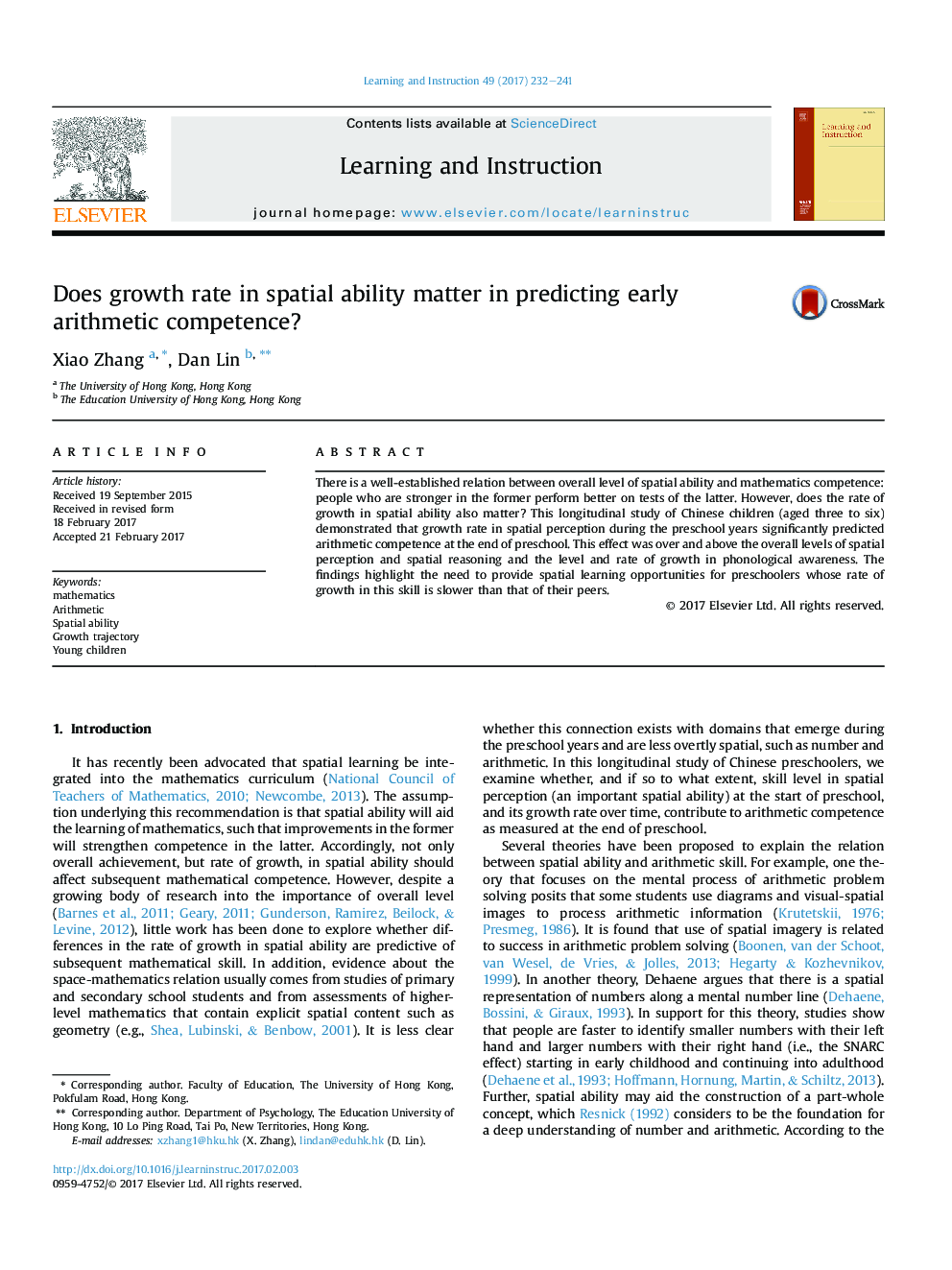| Article ID | Journal | Published Year | Pages | File Type |
|---|---|---|---|---|
| 4940268 | Learning and Instruction | 2017 | 10 Pages |
Abstract
There is a well-established relation between overall level of spatial ability and mathematics competence: people who are stronger in the former perform better on tests of the latter. However, does the rate of growth in spatial ability also matter? This longitudinal study of Chinese children (aged three to six) demonstrated that growth rate in spatial perception during the preschool years significantly predicted arithmetic competence at the end of preschool. This effect was over and above the overall levels of spatial perception and spatial reasoning and the level and rate of growth in phonological awareness. The findings highlight the need to provide spatial learning opportunities for preschoolers whose rate of growth in this skill is slower than that of their peers.
Related Topics
Social Sciences and Humanities
Psychology
Developmental and Educational Psychology
Authors
Xiao Zhang, Dan Lin,
